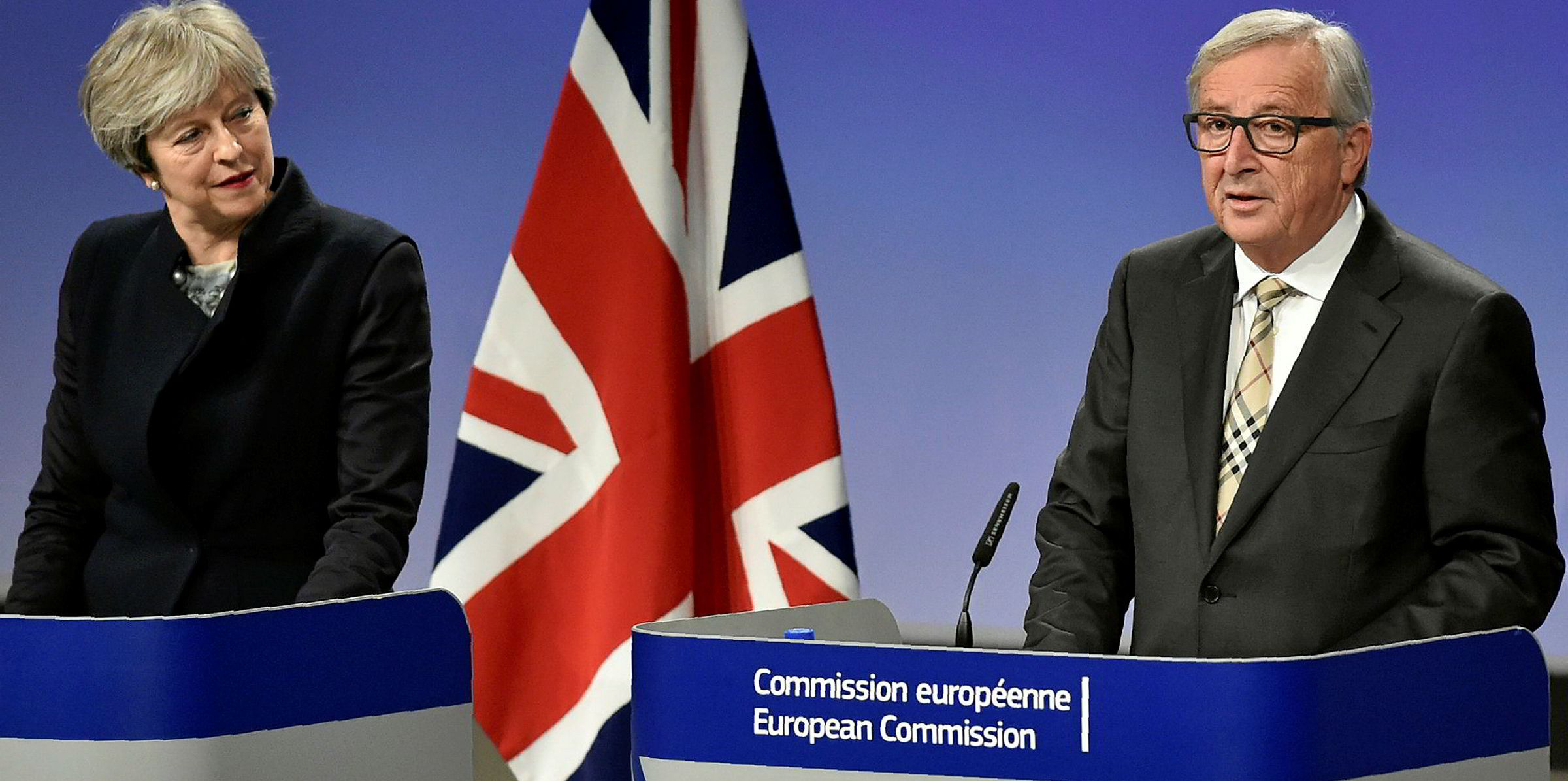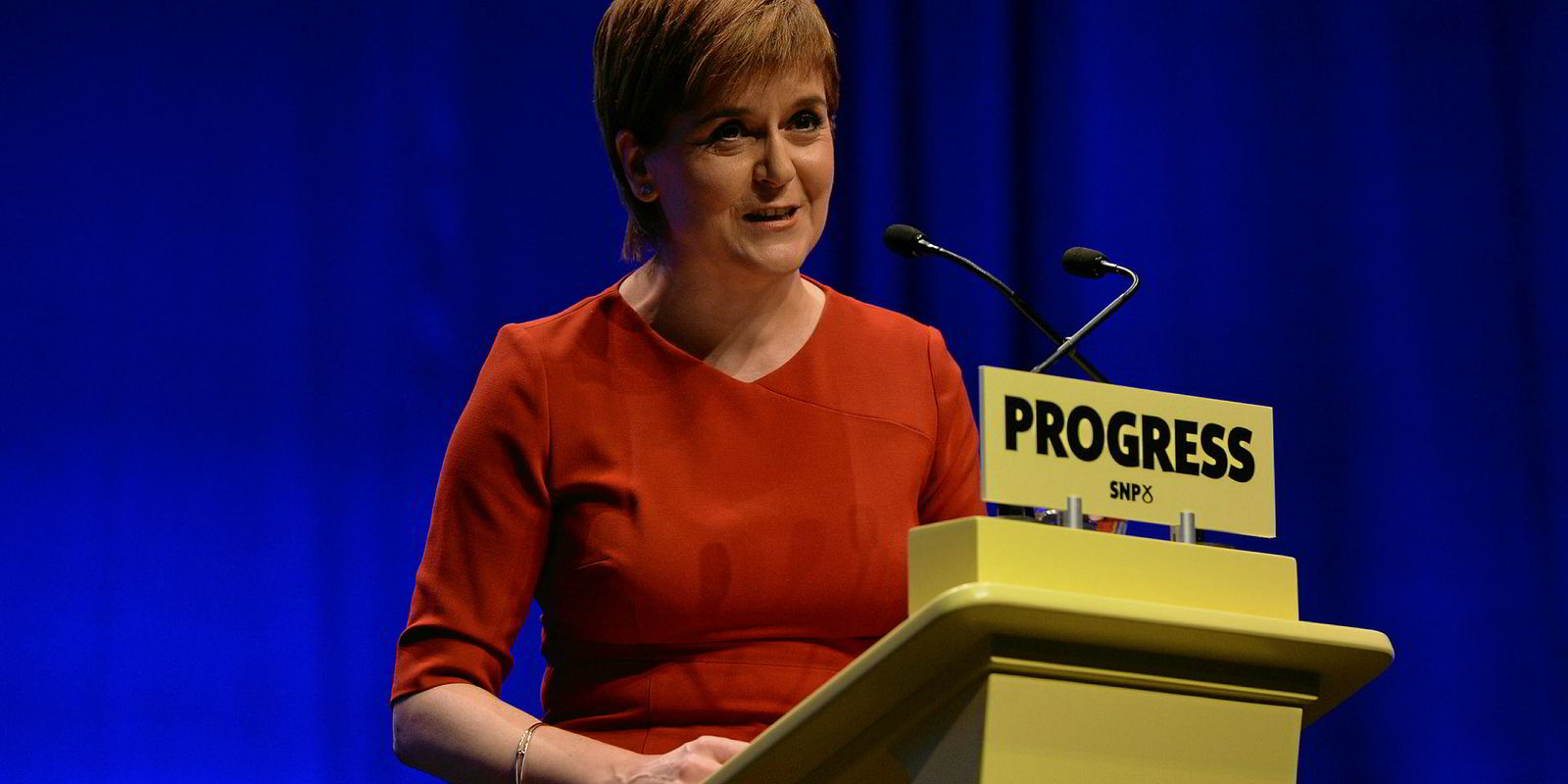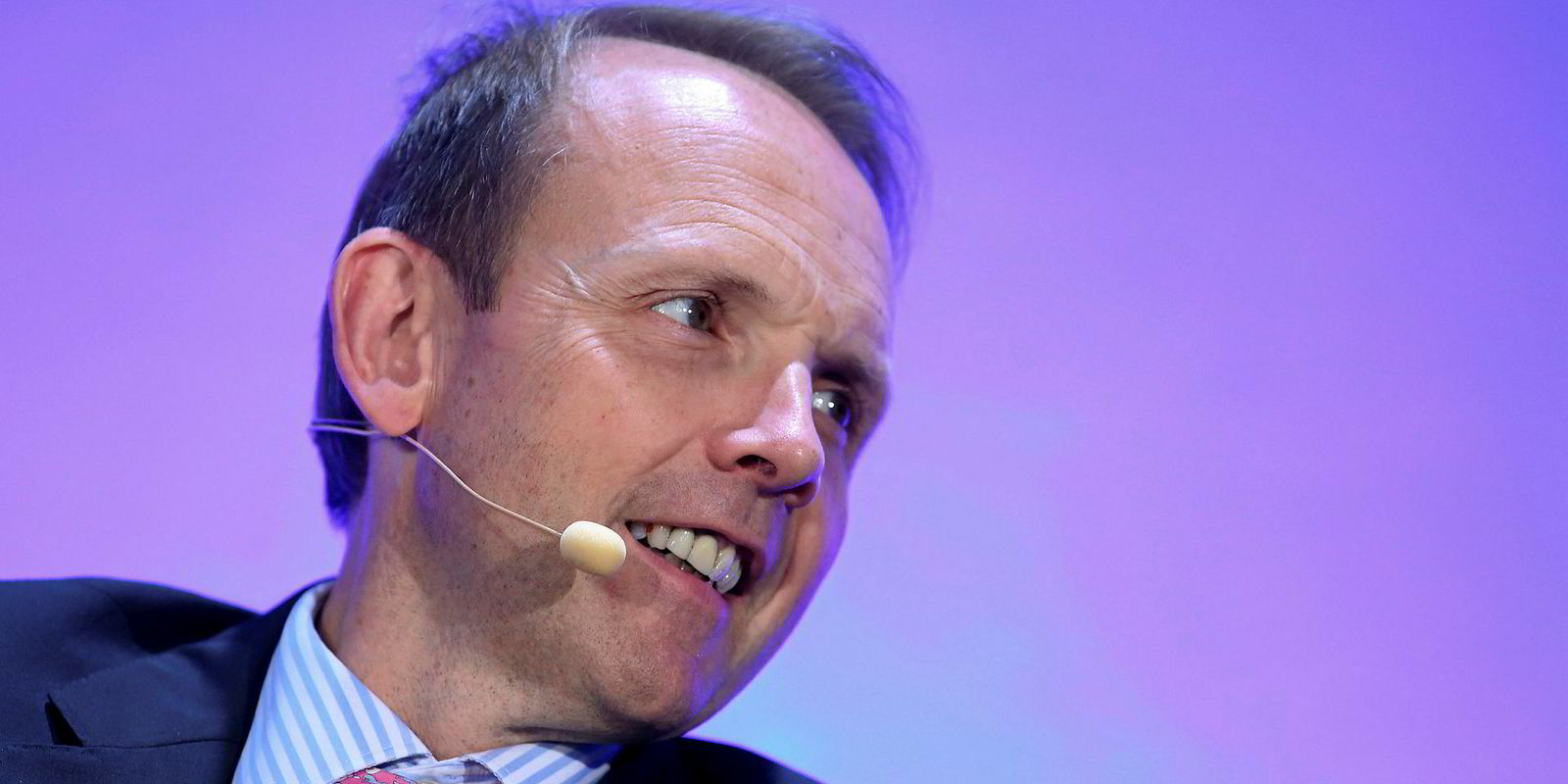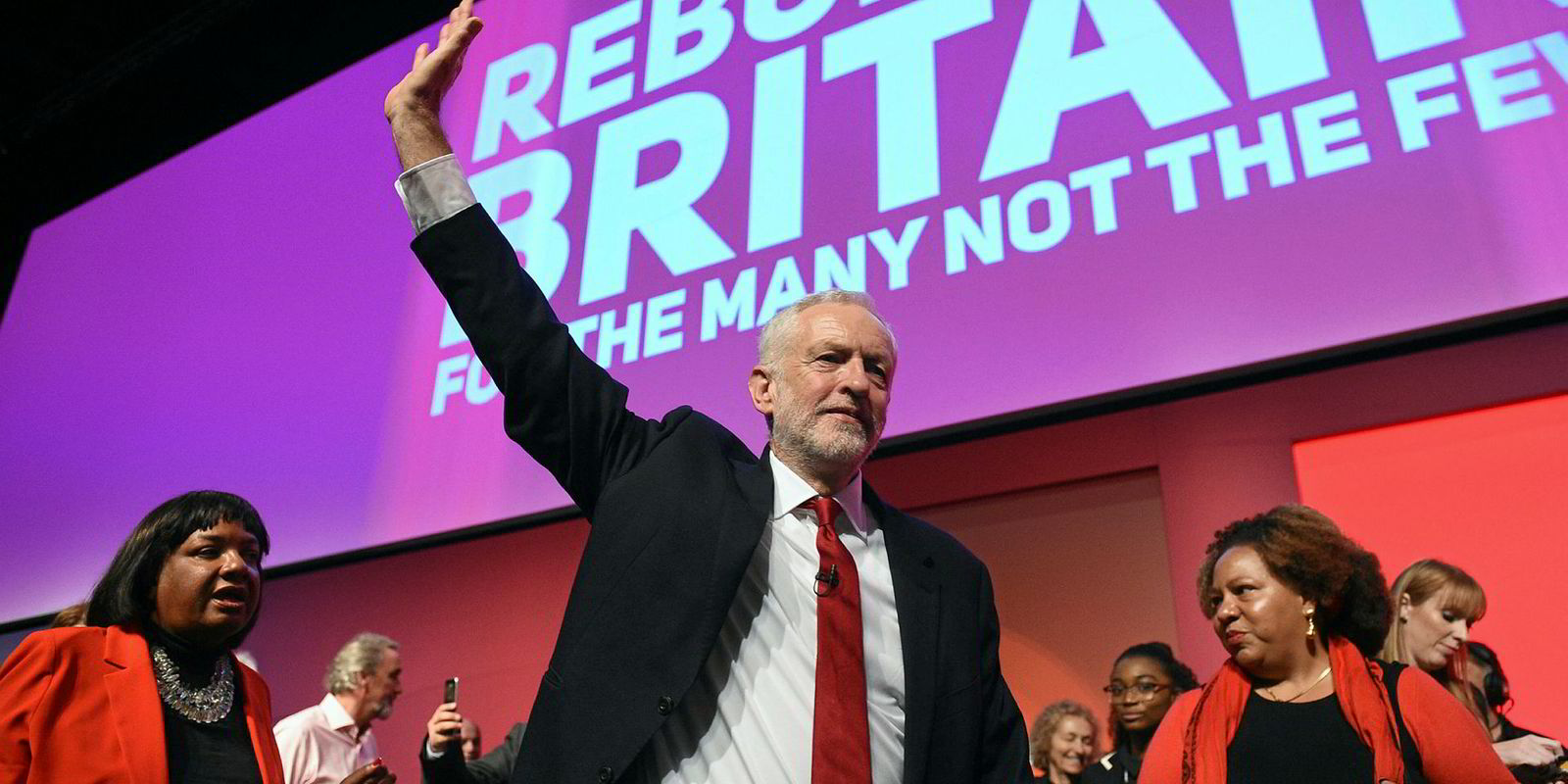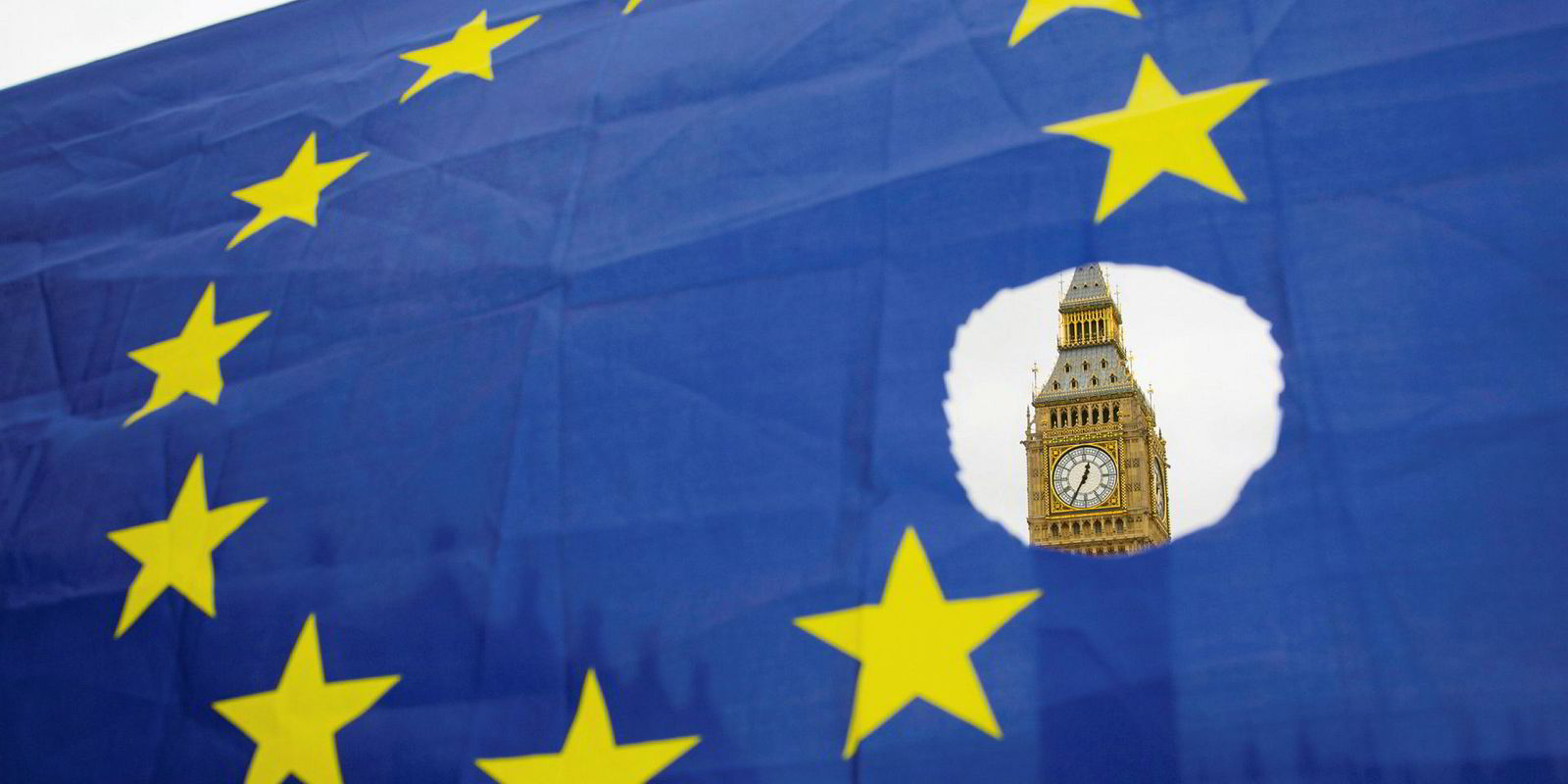Industry bodies and businesses are stepping up pressure on the UK government and EU to listen to their Brexit concerns as a fierce political debate rages over British Prime Minister Theresa May’s Chequers plan designed to pave the way for leaving the bloc.
Strong warnings have been sounded by the wind industry that it doesn’t see any advantage to either the UK or Europe from a significant divergence from the current rulebook and that tariffs and other barriers to energy trading could potentially damage its growth prospects.
In an interview with Recharge Lawrence Slade, chief executive of trade body EnergyUK, said that climate and energy issues could not be satisfactorily addressed under a conventional Free Trade Agreement (FTA) between the EU and UK on climate change and energy policies.
“The energy sector has a long history of collaboration between the UK and EU. This cooperation has enabled available resources and capacities to be shared across borders to reduce costs, improve security of supply, better integrate renewable energy and achieve climate change targets.
“This is something very specific for our sector and a very unique feature of our future relationship with the EU. For that reason, EnergyUK has been advocating for a comprehensive energy and climate chapter to be part of the future FTA.
“The energy sector plays a vital role in decarbonising the economy and reducing carbon emissions, and both the EU and UK share ambitious targets on climate change.
“Our departure from the EU should not result in a less stable or less ambitious climate policy – if anything the UK should be more ambitious.”
Slade says this is an issue that should concern both sides in the negotiations “as the UK and EU share the same climate and decarbonisation objectives which are extremely challenging and there is no benefit to the UK or the EU to have diverging policies”.
In a letter to May and European Commission president Jean-Claude Juncker last month a top-level business alliance – including EnergyUK, WindEurope and RenewableUK – warned of the risks that Brexit may create extra costs for such strategically important sectors to the low carbon transition as offshore wind, energy storage and electric vehicles.
Slade warns that losing a collaborative UK-EU approach would make it more difficult and more costly to deliver on those decarbonisation ambitions.
“We are concerned that Brexit will create additional costs for a number of strategic issues. Should that be the case, there is a risk that the progress in those strategically important areas [of wind, storage and electric vehicles] might slow down”.
The wind industry has called on political leaders to prioritise an agreement between the UK and EU to secure the tariff-free and frictionless access to both markets for low carbon goods and services. “We urge you to ensure such [additional] costs are avoided,” says the industry.
Political headwinds
However, May is in deep political trouble over her Chequers “soft Brexit” proposals on which she had hoped to get an agreement hammered out in a series of summits with EU leaders this autumn, before bringing it back to the UK Parliament for approval.
The 12-point Chequers plan contained proposals which analysts claimed would generally be good for renewables, including a UK-EU free trade area with a common rulebook for industrial goods, and a new business friendly customs model with freedom for the UK to strike new trade deals around the world.
But May was dealt a humiliating blow at crunch talks in Salzburg last month when EU leaders – led by president of the European Council Donald Tusk and French President Emmanuel Macron – dismissed her Chequers plans with some leaders telling Britain to go and hold a second referendum. The EU27 still believes the UK is trying to choose the best aspects of EU membership and ditch those bits it does not like.
For instance the EU says the Chequers demands for a single market for goods and agriculture, but not for services would completely undermine the principles of the club. Brussels argues such a plan would divide the EU’s single market. “While there are positive elements in the Chequers proposal, the suggested framework for economic cooperation will not work,” said Tusk.
May now says it comes down to a simple choice between her Chequers plan or a no deal Brexit has indicated she still hopes to make progress in the next round of EU negotiations over the outstanding issues, before seeking approval from the UK parliament. However, she has hinted that she is willing to compromise on some elements of her proposals.
The Prime Minister’s Chequers plan has proved to be widely unpopular both inside and outside the ruling Conservative party with former foreign secretary Boris Johnson calling it an “outrage” at the party’s conference.
Opposition to her proposals centres around the European Research group of “hard” Brexit supporting MP’s led by Jacob Rees-Mogg. The right-wing MP has urged others to “chuck Chequers” with a group of up to 80 Conservative MP reported to be prepared to vote against May’s plan.
With the opposition Labour party also threatening to vote against any deal unless its meets the party’s six tests for Brexit, it would need just a handful of Tory rebels to vote against her to see the plan defeated in parliament.
Adding further pressure on May opposition leader Jeremy Corbyn has indicated that if she cannot secure a good Brexit deal for the country then Labour will press ahead with calls for an early General Election by Christmas.
Business fears
Confederation of British Industry director general Carolyn Fairbairn claims business leaders feel “frustration bordering on despair” over the fractious Brexit political “soap opera” currently being played out. She raises alarm at the future long-term business attractiveness of the UK which is looking “so unpredictable at the moment”.
Fairbairn maintains that the government’s White Paper on Brexit, published in July, contained a lot of what UK business needed. “We’ve reached a tipping point here, and it really is time to pull together around a single plan,” she says.
Companies involved in the UK offshore wind business have expressed growing concerns. German-Spanish turbine manufacturer Siemens Gamesa Renewable Energy (SGRE) has indicated that a “hard” Brexit could lead to a shift to its supply-chain strategy at its blade factory in Hull, northeast England.
SGRE chief executive Markus Tacke says any trade barriers would put the export operations at the Hull plant “under scrutiny” and increase the price of components. He said the company “benefited” from the ease of doing business in the EU when it established the production facility.
Beyond the fear of trade barriers, Tacke also warns against Brexit-imposed limitations on the free movement of people would also impact on the European wind industry.
We wouldn’t want to see any disruptions, or additional costs imposed on our UK supply chain.
Marine contractor OMM has called on companies in the offshore wind sector to “come together” and have a “tough, frank” conversation about the future of the industry following Brexit.
OMM director Rob Grimmond warns of “the negative impact of a no-deal Brexit, or a Brexit that restricts the movement of workforces in UK and European waters, which could be extremely harmful for the industry as a whole if we do not have these conversations”.
Luke Clark, head of external affairs at industry body RenewableUK points out that on offshore wind the industry has been successfully “driving down costs fairly relentlessly over the last ten years” and the UK “now has firms that supply into the wind industry on a Europe-wide basis”.
“We wouldn’t want to see any disruptions, or additional costs imposed on our UK supply chain that could mean extra costs under a no deal type scenario, due to additional tariffs being applied to goods,” he tells Recharge.
A UK government spokesperson tells Recharge that “we firmly believe it is in the interests of both the EU and the UK to strike a Brexit deal. That remains the goal on both sides and we are confident that this will be achieved”.
On the concerns expressed by SGRE about possible supply chain disruption the spokesperson adds “we have put forward a precise and credible plan for our future relationship with the EU. As part of this we have proposed a UK-EU free trade area underpinned by a common rulebook on manufactured goods.
“We are confident of securing a good deal and look forward to continuing to engage with the EU on our proposals.”
Clark said the White Paper spelled out with a bit more clarity that the government would look at two alternatives – of either retaining membership of the Internal Energy Market, or an alternative which would see the UK leave the IEM, but retain a close degree of alignment on such things as interconnection of our electricity systems.
RenewableUK also warns that any imposition of additional costs on the use of interconnectors linking the UK and its European neighbours “would hit consumers and undermine efforts to counter climate change”.
Slade highlights the importance of such projects as the North Sea Offshore Grid as presenting “a significant opportunity to integrate offshore wind generation and interconnector projects in the North Sea in order to take advantage of potentially significant economies of scale and thus reduce network costs”.
Michael Losch, director general for energy at Austria’s Federal Ministry of Tourism and Sustainable Development, tells Recharge one of the biggest upcoming issues on EU ministers agenda is the question of future interconnection between member states, between bidding zones, and between EU and non-EU countries.
“It is important that in the case of Brexit, particularly when dealing with Ireland and Northern Ireland, that we ensure that we do not create something which disturbs the ‘well functioning’ integration of the UK in European electricity markets.
“We are very confident that the whole Brexit issue around interconnection can be technically very well solved. However we do need to move ahead on this agenda with the British.”
Austria holds the presidency of the European Energy Council until the end of this year.
